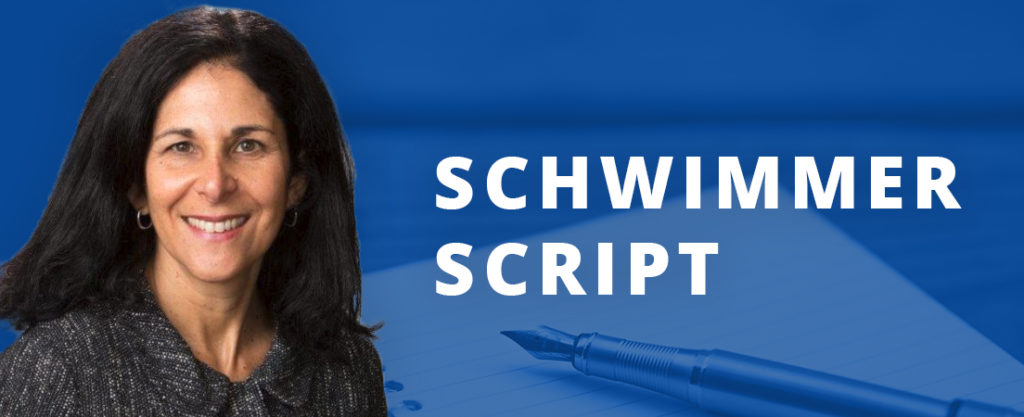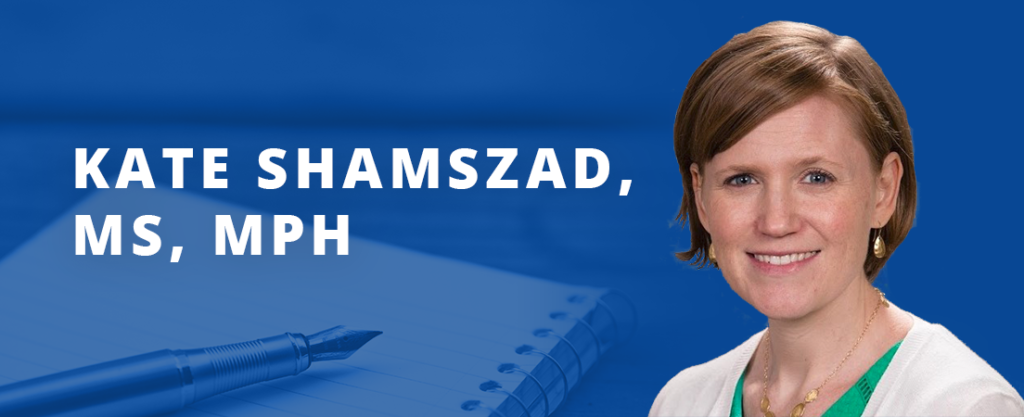Today, I am turning this space over to Kate Shamszad, MS, MPH, who is a Senior Program Officer at the Quality Institute’s Medicaid Policy Center. Kate led a workshop yesterday at Mount Sinai Kravis Children’s Hospital on Reflective Supervision, which is a way for clinicians to examine their own biases and improve care for patients. Kate is among our many staff members who bring their talents, dedication, and valuable real-world experience to support our members as they work to improve the safety, quality, and affordability of health care for everyone.
My first days of clinical training were a culture shock. Yes, I had spent the previous four years in Washington, D.C., a relatively large city. But I spent most of my life in Vermont, where most everyone looked like me — and shared similar life experiences. Now, here I was beginning an internship at New York’s Bellevue Hospital, the oldest public hospital in the United States. I questioned — rightly — whether my understanding of different cultures, beliefs, and races would need to expand for me to succeed in my job.
Each day brought a new child and family that had varying, and often complex, emotional and social needs. My job as a child life intern was to help children understand and cope with medical needs and hospitalization, while also normalizing the experience as much as possible. That meant building rapport with families, including many who were wary of the health care system. Within the complex infrastructure of a hospital, families who raised an issue or concern, didn’t immediately understand the care plan, or had cultural beliefs that varied from the caregivers, often were labeled as “difficult,” a title and stigma that followed them during their stay and subsequent treatment. I recall wanting to make sure that I learned how to serve as an advocate for the family, supporting the cultural and individual needs that other healthcare providers might not understand or mislabel.
I’m sharing these recollections now because I just facilitated a formal training workshop at a conference at Mount Sinai in New York for child life specialists and creative art therapists. It was called: Incorporating Reflective Supervision into the Clinical Practice. Before joining the Quality Institute, I worked as Clinical Director of Child Life and Integrative Care at Cincinnati Children’s Hospital Medical Center. In that position, I supervised Reflective Supervision for my clinical team.
Reflective Supervision explores ways to enhance the quality of care for patients and families through facilitated self-reflection. A group facilitator and peers examine cases the clinicians found difficult or troublesome. We processed complex clinical and social situations, and critically addressed our own professional competence.
I know that I’ve personally benefited from reflective practice. I was able to address many of the unspoken biases that I saw, experienced, and probably exhibited daily. I became a better clinician as a result of sharing my own preconceptions and also hearing those of my peers. As part of Reflective Supervision, we examine our own potential biases — explicit or implicit. Did we not understand the needs of the patient? Why was a case especially challenging?
As I moved on from my training at Bellevue and worked both as a clinician and leader in large hospitals throughout the country, I saw the positive impact of Reflective Supervision in recognizing, learning from, and growing toward an unbiased approach to care.
The Quality Institute and many of our members have been calling for a heightened awareness of racial bias in health care and for ways to address racial and other forms of bias. While I found value in a formal clinical Reflective Supervision program, there are other ways to recognize and share complex cases to enhance clinicians’ skills at providing unbiased care to patients and families.
- Find a peer or group of colleagues that you trust.
- Designate a time and space to safely discuss a case or patient that left you with a concern.
- Begin to explore your own perspective and beliefs related to the case.
- By beginning to regularly discuss not just the medical side of complex care, but also the emotional side of our work as caregivers, this reflective practice — both formal and informal — can help to chip away at personal biases and the systemic biases that have built up over time in our healthcare system.
If you would like to learn more or this is a program you would like to learn how to start at your organization, please reach out to me at kshamszad@njhcqi.org.


